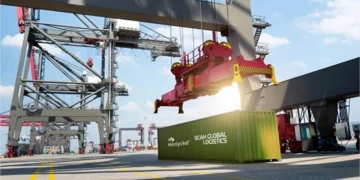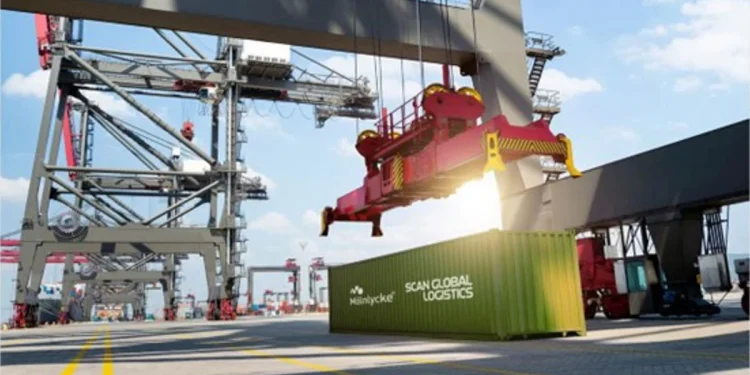By Eva Richardson | The Logistic News
April 8, 2025
In a bold move toward climate accountability, Mölnlycke Health Care has deepened its collaboration with Scan Global Logistics (SGL) to scale up the use of ocean biofuels across its maritime supply chain. This partnership underscores both companies’ commitment to decarbonizing freight and responding proactively to regulatory and environmental pressures in global shipping.
The initiative is aligned with Mölnlycke’s Science Based Targets initiative (SBTi) goals and forms part of its broader strategy to reduce Scope 3 emissions—the indirect emissions that occur throughout its value chain. As a leading medical solutions provider, Mölnlycke’s logistics operations span continents and play a significant role in its overall environmental footprint.
Biofuels as a Strategic Decarbonization Lever
By transitioning from conventional marine fuels to biofuels, Mölnlycke expects to cut well-to-wake greenhouse gas emissions by a substantial margin. The renewable marine fuels in use are made from sustainable waste-based feedstocks and offer an immediate solution for emission reductions without altering vessel infrastructure.
“This partnership with SGL allows us to actively reduce our CO₂ emissions in the present, not in a hypothetical future,” said a senior sustainability officer at Mölnlycke. “Biofuels are one of the few scalable tools available today that can make a real impact.”
Responding to the EU Emissions Trading System (ETS)
The decision to invest in low-carbon shipping alternatives is also financially prudent. The European Union’s ETS now includes maritime emissions, effectively taxing carbon emissions from ocean freight. Mölnlycke’s shift to biofuels is expected to mitigate rising costs linked to these regulatory developments.
SGL’s logistics experts are supporting Mölnlycke with detailed CO₂e reporting and emissions forecasting, offering full transparency into the climate gains of each shipment and route.
A Model for Climate-Conscious Logistics
The partnership between Mölnlycke and SGL exemplifies how sustained collaboration between shipper and logistics provider can yield scalable, science-based environmental gains. Beyond cost and compliance, the two companies are setting an example for the broader medical technology and healthcare logistics sectors.
“We’re not just reacting to regulation,” said an SGL spokesperson. “We’re helping our customers lead by embedding sustainability into the heart of their logistics operations.”
Future Outlook: Toward Industry-Wide Adoption
The success of Mölnlycke’s biofuel adoption is expected to encourage further investments in low-emission shipping and inspire other firms to follow suit. As green shipping corridors and sustainable freight initiatives gain traction, early adopters like Mölnlycke will be well-positioned to thrive in a net-zero global economy.
Conclusion: Decarbonization in Motion
In a logistics industry under pressure to transform, Mölnlycke and Scan Global Logistics have demonstrated that action on emissions is not just possible—it’s already happening. Their biofuel-powered model may soon become the standard for forward-thinking companies navigating the intersection of global trade and environmental stewardship.
For more on decarbonization and sustainable logistics innovation, follow Eva Richardson and The Logistic News on Google News and LinkedIn.























